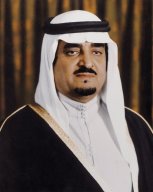


The determination of the Kingdom to support Islam and Islamic institutions to the best of its ability was evident from the formation of the Kingdom by King Abdul Aziz but it was only when oil revenues began to generate real wealth that the Kingdom could fulfill its ambitions of spreading the word of Islam to every corner of the world, of assisting Muslim countries less well endowed economically and of alleviating the suffering of Muslim minorities wherever they might live.
When King Fahd gave his support, either personally or through his Government, to these institutions, it was also part of his purpose to challenge and expose the caricature of Islam which is widely promoted by sections of the Western media. Islam is a religion of compassion which has exercised a profoundly civilizing influence on mankind. By ensuring that there should be, where most needed, voices to promote the true teachings of Islam and the contribution of Arab culture and Islam to the history of mankind, King Fahd hoped to counteract and challenge negative stereotyping. In this enterprise, King Fahd has enjoyed only partial success. The voice of Islam and Arab culture is stronger now than it has been for many decades and certainly far stronger than it would have been without King Fahd’s contribution, but the bias against Islam, the tendency, in some quarters, to identify Islam with fanaticism or even terrorism persists and has not been completely erased from the popular mind in the West.
The cost of King Fahd’s efforts in this field has been astronomical, amounting to many billions of Saudi Riyals. In terms of Islamic institutions, the result is some 210 Islamic Centers wholly or partly financed by Saudi Arabia, more than 1,500 Mosques and 202 colleges and almost 2,000 schools for educating Muslim children.

 Listen!
Listen!